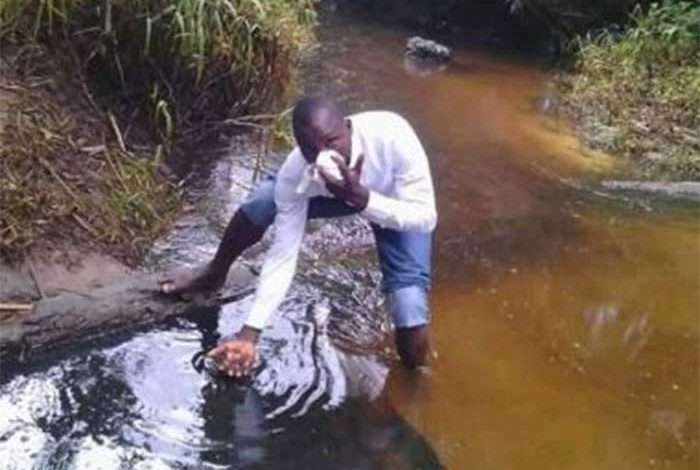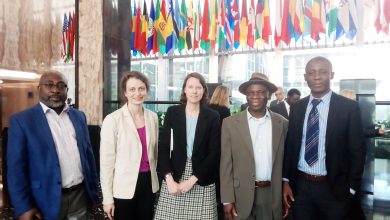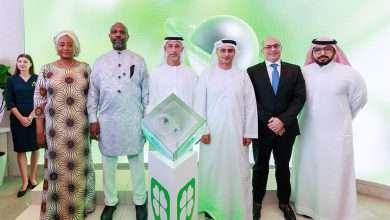
Since the release of the United Nations Environment Programme and the Environmental Assessment Report of Ogoni land in the Niger-delta region, there has been delay in the implementation of the report by the federal government,writes Ugo Aliogo
Nigeria’s economic mainstay is crude oil. The country’s crude oil is extracted from the Niger-delta, a region that accounts for a large chunk of Nigeria’s crude oil.
The activities of oil extraction and exploration have caused environmental degradation, destroyed the ecosystem, especially the marine wildfire and farming activities and polluted their waters. The International Oil Companies (IOCs) have been held responsible for these environmental damages. In 1990, under the military era, the Movement for the Survival of Ogoni People (MOSOP) was formed with the goal of protecting the environment of the Ogoni People of River State in the Niger-delta.
The Ogoni struggle began as a local quarrel with Shell Petroleum Development Corporation (SDPC) due to the destruction and damage caused to their ecosystem and environmental pollution. The struggle soon went beyond Shell to the military government of Late General Sani Abacha. Though MOSOP lost the fight and this consequently led to the death of Ken Saro Wiwa and eight other Ogoni sons, in November, 1995.
After the death of Ken Saro Wiwa and his kinsmen, efforts were made to resolve the conflict between the Ogonis themselves on one hand and their conflicts with Shell and the federal government on the other hand. Series of efforts were made by the federal government, Non-governmental organisations, faith based organisations, and others to find lasting peace in Ogoni land. The federal government under late General Sani Abacha, set up a National Reconciliation Commission headed by Mr. Alex Akinyele. But the panel seemed to lack legality since the Ogonis and other Nigerians believed that the government was the source of their crisis.
Today, Civil Society Organisations (CSOs) are calling on the government to wake up to the needs of the people who have voted them into power.
They urged the federal government not be blinded by the gains and revenues gotten from these companies and the divestment processes, to properly review the operations of the IOCs and how host communities have become victims of their own environment.
Oil Spills in the Niger-Delta
A report by Amnesty International in 2008 and 2009, revealed that two massive oil spills in the fishing town of Bodo had a disastrous impact on the community. Thick black oil leaked into rivers and creeks for weeks, killing fish and robbing people of their livelihoods.
The report said Shell, the operator of the leaking pipelines, repeatedly understated the volume of oil spilled and offered the community only a paltry amount of compensation $4000.
Amnesty International in the report said it assisted the Bodo community take legal action, adding that Shell acknowledged that it had made false statements about the size of the spills and settled out of court, paying the community £55 million in compensation.
According to the report, “Since 2014, Eni has reported 820 spills in the Niger Delta, with 26,286 barrels or 4.1 million litres lost. Since 2011, Shell has reported 1,010 spills, with 110,535 barrels or 17.5 million litres lost. That’s about seven Olympic swimming pools. These are huge numbers, but the reality may be even worse. The companies’ figures are vastly different to those of the Nigerian government, which recorded 1369 Shell spills and 1659 ENI spills in the same timeframes. The spill volumes are also likely to be inaccurate as our research has shown how the companies underestimate the real amount.”
“In November, 2023, the Director-General of the National Oil Spills Detection and Response Agency (NOSDRA), Idris Musa, said about 3,000 barrels of crude oil were lost to the 15 November, oil spill from the offshore Egina Floating Production Storage and Offloading (FPSO) vessel of Total Energies.”
Shell’s Decision
The decision by Shell to divest its onshore business in Nigeria by reaching an agreement with Renaissance in a deal valued at $2.4billion has raised dust in the Niger-Delta, especially among the host communities, CSOs, and human right activists. Renaissance, a consortium of five companies, will acquire the SPDC. The consortium includes ND Western, Aradel Energy, First E&P, Waltersmith and Petrolin. Shell said it has structured the deal to maintain SPDC’s operational capabilities to support the SPDC Joint Venture (SPDC JV). With a 30 percent stake, SPDC is the operator of the SPDC JV.
On its part, Shell stated that regarding the issue of remediation, it has the responsibility for remediating the environmental impacts from its operations as well as historical spills that had not been cleaned up when its $2.4 billion onshore oil assets transaction is completed will be taken over by its Joint Venture (JV) partners.
In a document detailing Frequently Asked Questions (FAQs) relating to the deal released on its international website, the British multinational stated that the roles and responsibilities of the SPDC JV partners will remain unchanged.
It would be recalled that in 2022, SPDC said it successfully remediated an additional 230 impacted sites, compared to 187 sites remediated in 2021, adding that 776 affected sites had been remediated since 2016.
According to Shell Nigeria Briefing Notes For 2022 Business Activities, “In the Niger Delta, over the last 12 years, the total number of operational hydrocarbon spills and the volume of oil spilled from them into the environment have been reduced significantly.
UNEP Report
The UNEP Environmental Assessment report of Ogoniland stated that due to the wide extent of contamination (in Ogoniland and nearby areas) and the varying degrees of degradation, there will not be one single technique appropriate for the entire area.
The report explained that a combination of approaches would therefore need to be considered, adding that this would range from active intervention for cleaning the top soil and replanting mangrove to passive monitoring of natural regeneration.
The report said mangrove restoration in Ogoniland would be a project which would take up to 30 years, once the ongoing pollution is stopped, and an appropriate approach will be to initiate restoration in number of largescale experimental pilot sites (of 10 hectares each) and apply the lessons learnt in each of the locations to rest of the area with similar ecological and hydrological conditions.
The report espoused that in locations where the mangrove trees have died, a more active intervention approach which involve clean-up of the hydrocarbons on the top soil and bituminous substances on the dead stems followed by artificial replanting should be attempted.
The report further noted that the environmental assessment revealed that in addition to chronic exposure to oil, there are at least three groups of people in the Ogoniland whose health and safety are acutely impacted by the environmental contamination:
According to the report, “Those exposed to hydrocarbon pollution in them drinking water, including one community where benzene concentrations are extremely elevated those living on oil pipeline rights of way, and those involved in bunkering and artisanal refining.
“For each of these groups, reducing the threat that petroleum hydrocarbon poses to their health is an immediate and necessary first step. UNEP monitoring showed that there is one community, at Nisisioken Ogale, where families are drinking water highly contaminated with petroleum hydrocarbons, most notably benzene, at concentrations far above the threshold of acceptability according to WHO guidelines.
“Exposure to such high levels of hydrocarbons is certain to lead to long-term health consequences for community members. This situation warrants the immediate action of stopping people from drinking water from the contaminated wells and providing them with alternative a source of safe water.”
Litigation against Shell
In a ruling that set corporate accountability precedence for oil multinationals globally, a Dutch appeal court in the Hague on Friday 29, January 2021, ruled that the Nigerian subsidiary of Royal Dutch Shell (RDS), Shell Petroleum Development Company Nigeria (SPDC) should pay compensation to Nigerian farmers for despoiling their communities in Rivers and Bayelsa States.
The litigation against shell has been ongoing in the last 13 years with efforts by the oil giant to torpedo it.
The amount of compensation to be paid to the farmers is to be determined later, according to reports by some Dutch newspapers, but the ruling convicted Shell of liability for two oil spills in Goi, Rivers State and Oruma, in Bayelsa, ravaging communities.
The names of the farmers are Alali Efanga, Friday Alfrad Akpan, Chief Fidelis A. Oguru, and Eric Dooh.
The case against parent company, Royal Dutch Shell (RDS) and its subsidiary, SPDC was instituted in 2008 by Friends of the Earth Netherlands (Milieudefensie) and four Nigerian farmers.
The case is unique because it is the first time a Dutch company has been held liable together with its foreign subsidiary for the breach of its duty of care abroad.
In the past Shell had argued that it should not be held legally responsible in the Netherlands for the actions of a foreign subsidiary in Nigeria.
But the Friends of the Earth Netherlands and the Nigerian plaintiffs held Shell and SPDC individually responsible for the oil spills and the failure to clean up the pollution.
Expert Opinion
In an interview with THISDAY, the Acting Executive Director of ERA/FoEN, Chima Williams, said in nearly seven decades of Shell’s operations in Nigeria, it has afflicted poverty on local communities in the Niger Delta that host its facilities, adding that the communities experience gas flaring, oil spills and sludge dumped in their rivers which have destroyed the ecosystem and affected livelihoods of the locals.
He hinted that the communities where Shell has operated over the years are worse than they were before Shell started extraction, and natural habitats have been destroyed and farming lands rendered useless.
He further explained that despite the huge revenues Shell have made from exploring the resources of these communities, most of them are living in poverty, with inadequate power supply, lack of infrastructural development, and lack of education.
Williams remarked that the Nigerian state is in bed with Shell, alongside the regulatory bodies and authorities, noting that most of them are more interested in their taxes and personal benefits, rather than the wellbeing and welfare of the local people who own the land.
According to him, “Several communities and organizations including the Environmental Rights Action/ Friends of the Earth Nigeria have been appalled at this development and some have gone ahead and taken legal action against Shell for the damages they have caused on our land, water bodies and air over the years. Some of the cases have gone well and some others are still in court. Unfortunately, most communities lack the resources required to follow the litigation process to the end.
He added, “The victory of the Nigerian farmers and ERA/FoEN against Shell in 2021 has jolted more organizations and communities to wake up to the rights of their people and the need to hold Shell and other companies accountable for their misdeeds
“In 2023, over 14,000 Nigerians took Shell to court to seek redress for several levels of damages they have suffered due to their activities. Hence, if all affected individuals and communities are to take up legal actions against Shell, the growing number of litigations is what Shell is trying to run away from.
“Shell has evaded these liabilities thus far because communities are yet to mobilize and demand what is owed to them in terms of cost of lost livelihoods and degraded environment, among others.”
Speaking on the state of the clean up, he said over the years, they have observed certain sluggishness in the implementation of the UNEP report and the clean up.
He expressed delight that the recently appointed Project Coordinator of HYPREP, Professor Nenibari Zabbey, is an activist who had campaigned for the restoration of the Ogoni environment as recommended by the UNEP.




